Nearly getting murdered isn’t funny. Neither is a midlife crisis or being fired on the eve of Thanksgiving. But for three Asheville-based comedians — Moira Goree, Jason Scholder and Chesney Goodson — these unfortunate events proved the catalyst for their comedy careers. Those eager for the juicy details behind the unusual starts need look no further than any given stage on any given night.
Asheville’s comedy scene, says local talent booker Melissa Hahn of Modelface Comedy “is bigger and better than people realize.” Whether it’s an open mic at Fleetwood’s, a showcase at The Lazoom Room, a headlining act at The Southern Kitchen & Bar or an improv troupe performing at Habitat Brewing Co. (just to name a few), the city isn’t short on laughs.
But within the comedy world, not all things are a laughing matter. Insecurities, social injustice, PTSD and eating disorders are among the topics explored in the acts of local artists. The highs that come with making strangers laugh is a thrill that many comedians chase, but the lows that follow a botched set are devastating. Because of this, comedian Kelly Morgan notes, “If you can quit comedy, you should quit comedy. It’s a beast.”
A spoonful of sugar
Despite these challenges and setbacks, Goodson has committed the last decade to the craft. After launching his career in Charlotte, he relocated to Asheville in 2016. The difference between the two scenes, he says, is night and day. For many regional comedians, Goodson explains, venues often encourage and reward comics who play to stereotypes. “If a dude is black, the act is usually very loud and big,” he says.
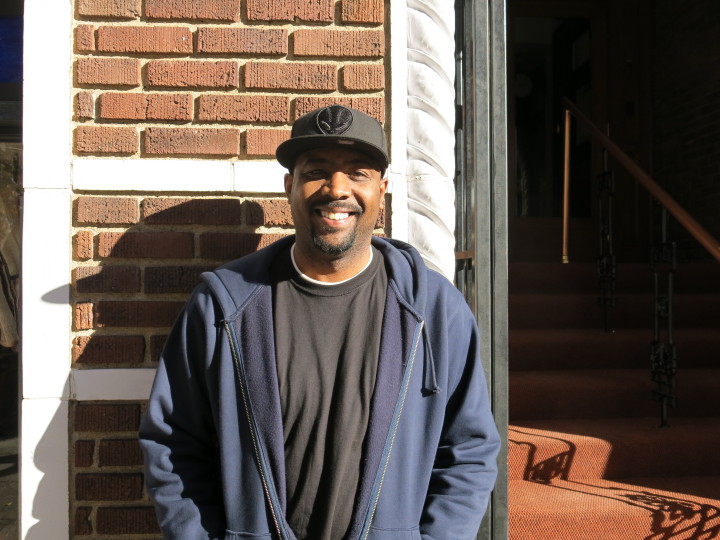
For Goodson, who is African-American, the expectation proved stifling. In Asheville, he says, the community is more receptive to his intellectual and socially conscious approach to humor. “I talk about race and police brutality; I talk about all of it,” he says.
The trick and beauty of comedy, he adds, is making these issues both impactful and funny. This is also the form’s greatest reward. Comedy, Goodson says, is the light. “We’re still in the dark, but there’s light right there, and I’m going to point it out. That’s what comedy should be.”
Goree shares Goodson’s outlook. Part of her material addresses her life as a transgender person. Humor, says Goree, is the spoonful of sugar that helps the medicine go down. “You feed it to somebody when they’re like, ‘I don’t understand what you are,’” she says.
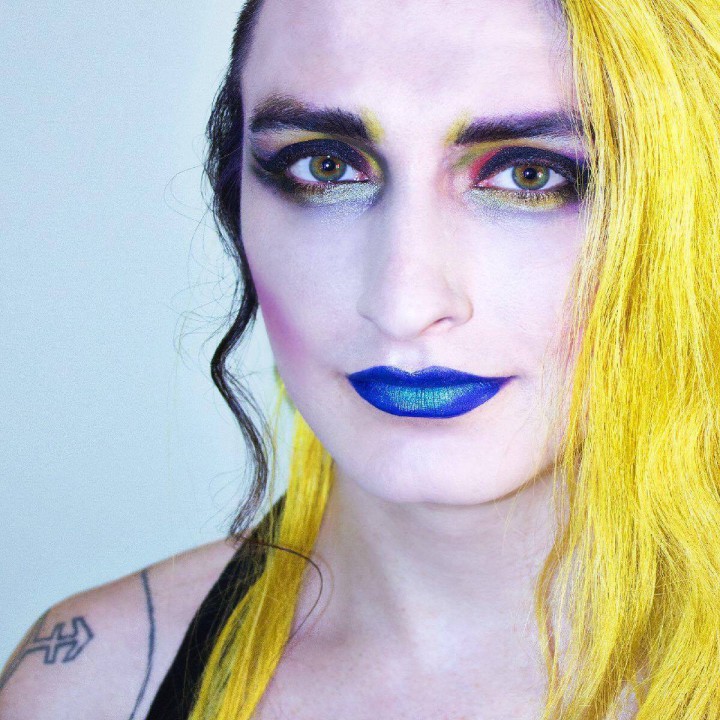
Only a year into her comedy career, Goree says the medium has helped her cope with the intolerance she regularly experiences. As an example, she points to a recent show in Greenville, S.C. Before taking the stage, she was verbally accosted by a man in the audience. Rather than recoil or dwell, Goree used the encounter as an impromptu opening line for her set. “I got up on the stage and I just went, ‘Well, that guy just threatened to murder me — welcome to Greenville, I guess.”
Elevating the scene
Like Goree, many in Asheville’s comedy scene are fairly green. Constant movement, explains Hahn, is the nature of the beast. “You can only do so much in Asheville,” the booker says. “People get better and move away, but then new people come in and join the scene.”
While most local comedians eventually end up in Atlanta, Los Angeles or New York, some in the current mix are actively working to elevate Asheville’s own reputation.
Scholder, who describes himself as a “midlife comic,” began his career two years ago. The comedian says it was a birthday gift he gave to his then-46-year-old self.
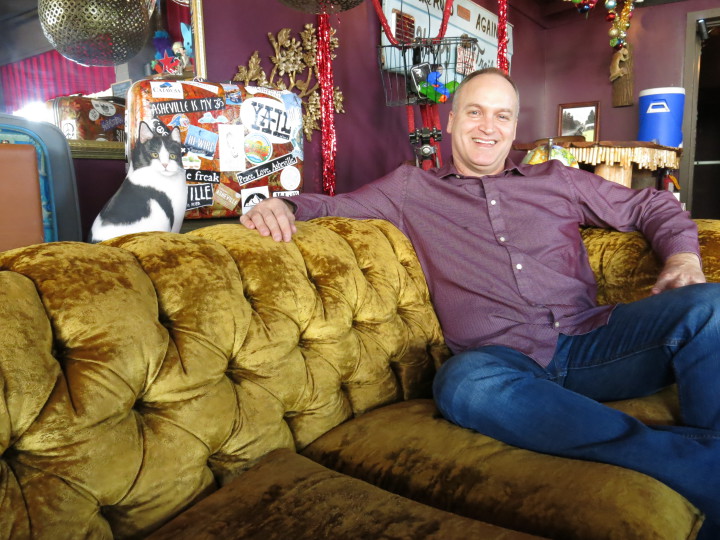
Since that time, Scholder has launched a production company through which he has created two podcasts and Talk About Funny, a monthly showcase. The latter, held at the LaZoom Room, is part stand-up, part talk show, featuring local and regional acts. “All the comedians are vetted,” says Scholder. “I want the audience to have faith that if they come, even if they don’t know who anybody is, it’s going to be a solid show.”
Adults acting like children
Talk About Funny’s most recent showcase included local comedian and Asheville Improv Collective co-founder Clifton Hall. Originally from Dallas, Hall relocated to Asheville three years ago with his wife and fellow AIC co-founder, Dana Hall.
The couple’s organization, an independent school that focuses on long-form improvisational comedy, began as a single class with four students. It has since expanded to eight classes and includes seven teachers. “I think Asheville is very much primed for anything that is community-based and involved,” says Clifton. Such qualities, he adds, are what improv is all about. “You meet people who are different, and you get to experience a bunch of different ideas. And, more importantly, you get to be an adult acting like a kid for a good chunk of the evening.”
All who go through AIC’s seven-week program finish the course with a performance at Habitat Brewing Co. Whereas stand-up revolves around getting laugh after laugh, improv involves more active listening and honest responses. “It sounds counterintuitive to comedy, but the laughs we’re going for in long-form improv are very much emotion-based and grounded in stuff you can relate to,” Clifton says.
Laugh for a change
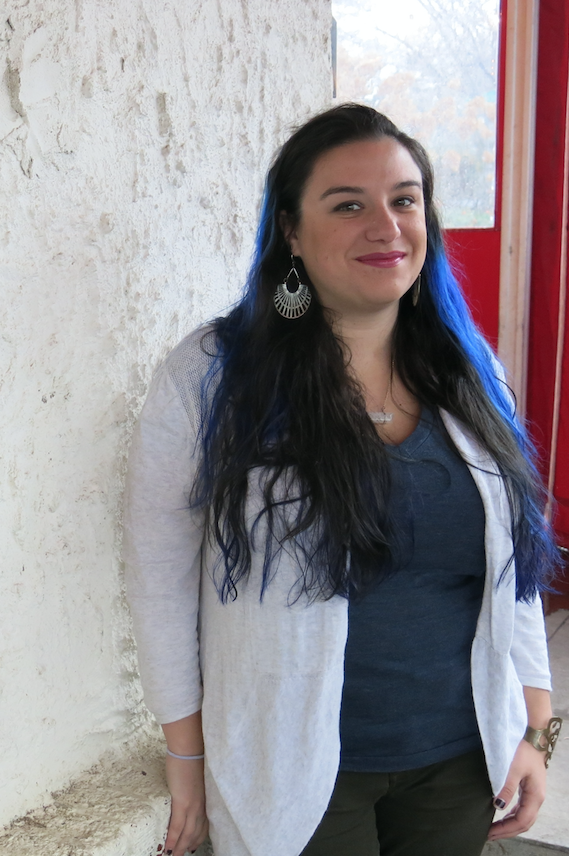
Many comedians say the true art behind a joke is the possibility for change. “Comedy is traditionally a venue where people can talk about difficult-to-broach subjects in ways that anyone can hopefully hear it because it’s all de-escalated by the comedic content,” says Scholder. “Now, if it’s not funny, it’s twice as bad — hard to hear and doubly damaging. But, when it’s done well, it’s done really well.”
Hahn agrees. It’s because of this potential impact that she continues to seek out unique voices. “I look for diversity not just in humans, but in what they’re bringing to the stage,” she says. “I’m not going to keep booking people who are doing similar material. … If you’re booking exclusively straight white men, which a lot of clubs do, then you are bringing the same thoughts and ideas, week after week.”
Goree believes inclusivity should be comedy’s primary goal. The struggle with this, she says, is that economics often determine who gets to be funny. Whoever has the disposable income and time to step away from the daily grind is usually the one who gets to step up to the mic.
“I would like to see a change in economics that would allow more marginalized people to stand up and have the time to craft a perspective where they can explain themselves,” she says. Humor, Goree adds, offers a chance to open minds, because sometimes it takes laughing at the absurd to truly recognize the irrational ways we treat each other. And that, she says, is the goal of comedy.



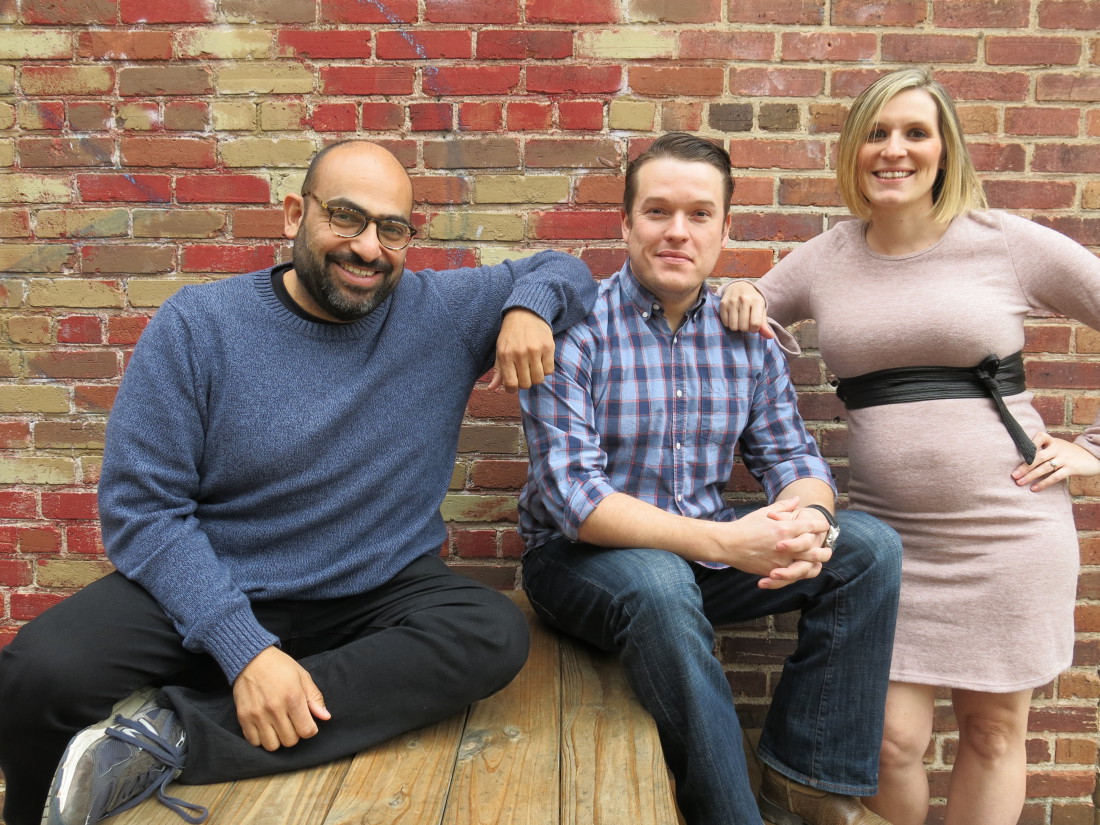


Great article as usual. Thanks Thomas.
We love how open Asheville is to various performing arts—comedy among them! Can’t wait to see more great stand-up this year